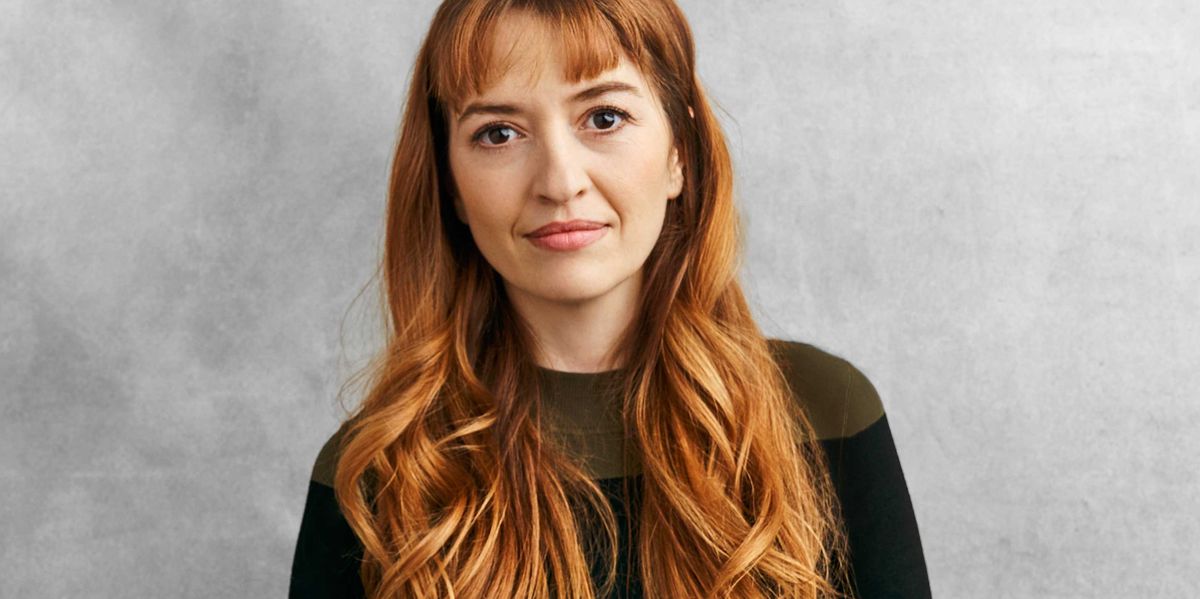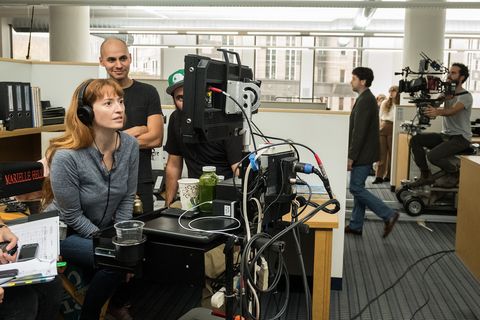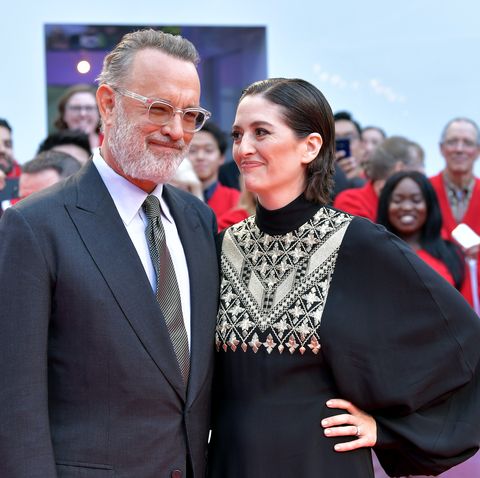Google Marielle Heller, and you’re likely to find her name on countless lists of 2019 awards season snubs. The actor and writer-turned-filmmaker took on the indie movie Can You Ever Forgive Me? after its original director bowed out; her critically acclaimed interpretation earned Oscar nominations for both Melissa McCarthy and Richard E. Grant.
Now she’s about to take a huge step into mainstream Hollywood with her new film, the highly anticipated A Beautiful Day in the Neighborhood, out today. Tom Hanks stars as Fred Rogers in the drama based on journalist Tom Junod’s life-altering experience of writing an Esquire profile on the beloved children’s television host. A month before the movie’s world premiere at the Toronto International Film Festival, Heller, now 40, spoke with ELLE about filmmaking, inequality in Hollywood, and why Mister Rogers is more important now than ever.
You grew up in the ’80s, when Mister Rogers’ Neighborhood was at the height of its popularity. Did you watch it as a child?
I did. It’s funny because you start watching Mister Rogers so young, it’s sort of in this subliminal part of your brain. I think that’s why people have such a visceral reaction to him. But I also remember the moment when I rejected the show and thought I was too old for it.
At what age did you feel you outgrew him?
MH: I don’t remember, but I just remember thinking it wasn’t cool anymore—that sad thing that happens in childhood of rejecting things that feel too sincere. But I think there’s a misunderstanding about Mister Rogers. I think we think that he was just happy and saw the world through rose-colored glasses, and it’s not true at all. He actually helped kids deal with some of the hardest stuff in childhood, like divorce and death. He did it in a gentle way that tried to help children deal with their feelings, but everything wasn’t rose-colored.
Your first two films were distinctly about women, so what drew you to this male-focused project?
Everything we’re talking about. I never thought I was going to make a movie about men. I’ve always thought we don’t have enough movies about women, and if I spent my whole life making movies only about women, there still wouldn’t be enough movies about women, so that’s a wonderful thing to dedicate my career to. And then I read this script. And I thought,“Damn, now I have to make this movie.” For the same reason I want to make movies about women, I also want to make movies that help men be better men and that can be an antidote to toxic masculinity. And I think the beginning of that is so deep in Mister Rogers’s teachings—being able to admit your feelings, being able to access them, finding ways to be more connected to our humanity. And that’s what this movie was about for me.
I’m also a parent of a young child, and there’s a big life shift that happens when you become a parent. You start reflecting on your own past and your own childhood, and it’s a really raw, emotional time, where you have to decide what values you want to put forth into the world and what you want to teach another person about who to be. What do we teach our boys, versus what do we teach our girls? How do we stifle our boys in terms of their emotions? How do we teach our girls that they have to be the emotion bearers of this world? Making a movie that tries to blast those gender roles and help bridge that divide felt really important to me.
Mister Rogers himself feels especially important in the current cultural and political climate.
I guess I always view movies as, in their best form, connecting us more to each other and to humanity. And Mister Rogers’s message was potent. He really believed that there was goodness in all of us, and that we all had value. And we’re obviously in a political time where we are not seeing the value in many people. So I hope the message of the movie is to remember that we all have value. And to remember what a hard thing it is to be alive in this world—and that we can find ways to be compassionate with one another.
What are the challenges of making a movie about a real person?
We were so conscious of wanting to get it right and be respectful. It feels like a responsibility to make a movie about somebody so beloved. And I think there are a million movies that could be made about Mister Rogers. This movie is sort of taking his mission and seeing it in action. It’s about experiencing what it would be like if you were becoming friends with him, and how he could change your perspective on the world.
Speaking of perspective, it’s a really interesting time to be a female director. In some ways, it does feel as if there is more visibility. And in others, as with the lack of female nominees in directing categories at awards shows, it feels as if nothing has changed.
Well, the numbers show nothing has changed.
Right. A USC Annenberg study said that only 4.3 percent of directors from 2007 to 2017 were women. What is your perception of that, as someone who is on the inside?
I don’t think I’ll ever feel like I’m on the inside. That’s just not my personality. I think it’s probably why I can handle being one of the few people who have the privilege of doing this job right now. There are so many talented women and nonbinary people out there who should be getting more opportunities. And I know that the only reason I am able to do this is because of all the women who came before me and pushed the door open. I’m getting to benefit from that, and I feel incredibly lucky in that way. But the numbers obviously show that’s not helping everybody, particularly women of color. So what’s the answer? I don’t know. I want to do a good job so that other women are granted opportunities.
This article originally appeared in the November 2019 issue of ELLE.


